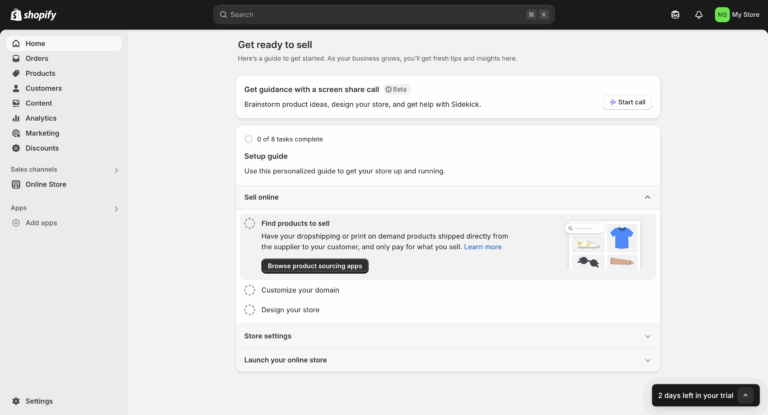Greetings! I'm Aneesh Sreedharan, CEO of 2Hats Logic Solutions. At 2Hats Logic Solutions, we are dedicated to providing technical expertise and resolving your concerns in the world of technology. Our blog page serves as a resource where we share insights and experiences, offering valuable perspectives on your queries.
Shopware excels in native e-commerce capabilities, scalability, and security, making it ideal for serious online retailers. WordPress with WooCommerce offers more flexibility but requires extensive customization for enterprise e-commerce. Choose Shopware for a pure e-commerce focus and WordPress for content-heavy stores with basic e-commerce needs.
Choosing the right e-commerce platform is like laying the foundation for your house. Everything you build depends on it. With global e-commerce sales projected to hit $6.3 trillion in 2024, the stakes are higher than ever.
Credits:Shopify
When deciding between Shopware and WordPress, you’re not just picking a platform. You’re selecting the backbone of your business’s future success. In this blog, we will compare the functionalities of both platforms to help you choose the right one.
Let’s dive deep into how these platforms compare across key factors like architecture, performance, scalability, etc.
WordPress
WordPress powers 43.2% of all websites globally, and its WooCommerce plugin drives 28% of online stores. Originally launched as a blogging platform in 2003, WordPress evolved into a flexible CMS capable of supporting e-commerce through WooCommerce.
Key Strengths of WordPress
- Flexibility: Ideal for content-driven e-commerce sites like blogs with online stores.
- Ecosystem: Over 59,000 plugins and themes, offering various customization options.
- Community: A massive support network and resources available worldwide.

Shopware
Shopware started in Germany in 2000. This is a dedicated e-commerce platform that serves over 50,000 merchants worldwide. It is designed specifically for online retail. This makes it a strong contender for mid-to-large-scale e-commerce businesses.
Key Strengths of Shopware
- E-commerce-first Focus: Features like advanced product management, customizable checkout, and integrated marketing tools.
- API-First Design: Ideal for headless commerce setups.
- Built-in Scalability: Handles growing businesses without relying heavily on third-party plugins. But in some cases, plugins are required to increase the functionality.
Core Architecture
The architecture of these platforms significantly impacts certain features. They are performance, scalability, and ease of use. Here’s how they compare:
| Feature | Shopware | WordPress + WooCommerce |
| Core Focus | Pure E-commerce | Content Management with E-commerce Addition |
| Architecture | Symfony-based, API-first | PHP-based, Plugin-dependent |
| Database | Optimized for Products | Optimized for Content |
| Scalability | Built-in | Plugin-dependent |
| Updates | Unified System | Multiple Components |
Advantages of Shopware’s Architecture:
- Headless Commerce: Its API-first approach enables integration with external systems like PIMs and ERPs.
- Unified Codebase: Easier to maintain and update.
- Enterprise Stability: Built on the Symfony framework, offering robust scalability.
Considerations for WordPress + WooCommerce:
- Flexibility Comes at a Cost: While the platform is highly adaptable, managing plugin interdependencies can lead to conflicts.
- Content-first Design: Great for sites that prioritize blogging or content marketing over e-commerce.
- Maintenance: Requires regular updates for core, plugins, and themes.
Performance:
Performance testing on identical hosting environments with 100 products loaded revealed the following:
| Page Type | Shopware | WordPress + WooCommerce |
| Homepage | 1.2s | 2.1s |
| Product Page | 1.4s | 2.5s |
| Category Page | 1.3s | 2.3s |
Loading Speed Comparison: this may change according to different scenarios. (Default Installation)
Takeaway: Shopware’s architecture offers faster load times out of the box, which can significantly improve the user experience and conversion rates.
Scalability: Growing with Your Business
Shopware is inherently built to handle scalability, making it an ideal choice for businesses planning rapid growth. Features like multi-store management, advanced Shopware caching, and enterprise-ready integrations come standard.
In contrast, WordPress relies heavily on plugins to scale. While it can handle large volumes of traffic. This often requires substantial investment in hosting and custom development.

Related Articles





